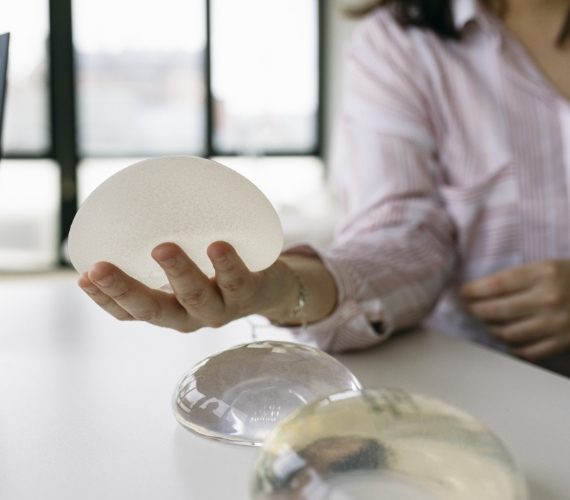Login
Breast Implants with/without Tissue Expander
Most women can have implant reconstruction.
Breast Reconstruction
Breast reconstruction utilizing implants is the most commonly performed surgical procedure following a mastectomy. Usually, this is done in a staged fashion, starting with a tissue expander (TE) placed in the chest area (above or below the pectoralis muscle) immediately after the mastectomy. The TE is used to stretch the skin in the chest so the permanent implant(s) will fit.
Having a breast tissue expander/implant reconstructive surgery is fairly low risk. It typically requires one night stay in the hospital and several surgical drains in the chest area. Recovery is relatively quick, with most patients feeling back to themselves in 3-4 weeks. During this time, you are followed closely in the plastic surgery office.
Over the next several months, your breast reconstruction team will add fluid, a little bit at a time, until reaching the desired size of your new breast(s). Then the care team will schedule your surgery to remove the TE and insert the implant. It is safe to have a tissue expander in place if you require chemotherapy or radiation therapy.

Who can have this Procedure?
Most women can have implant reconstruction; however, if you have had radiation treatment in the past for breast cancer, implants pose a higher risk than for those who haven’t. Radiation changes the quality of your skin and the tissue of your chest wall, so it may be harder to stretch your skin with a TE. In addition, there is a greater risk for infection, bleeding, and delayed wound healing.
Contact Us
For more information or to schedule an appointment, call our office at 302-623-3605.